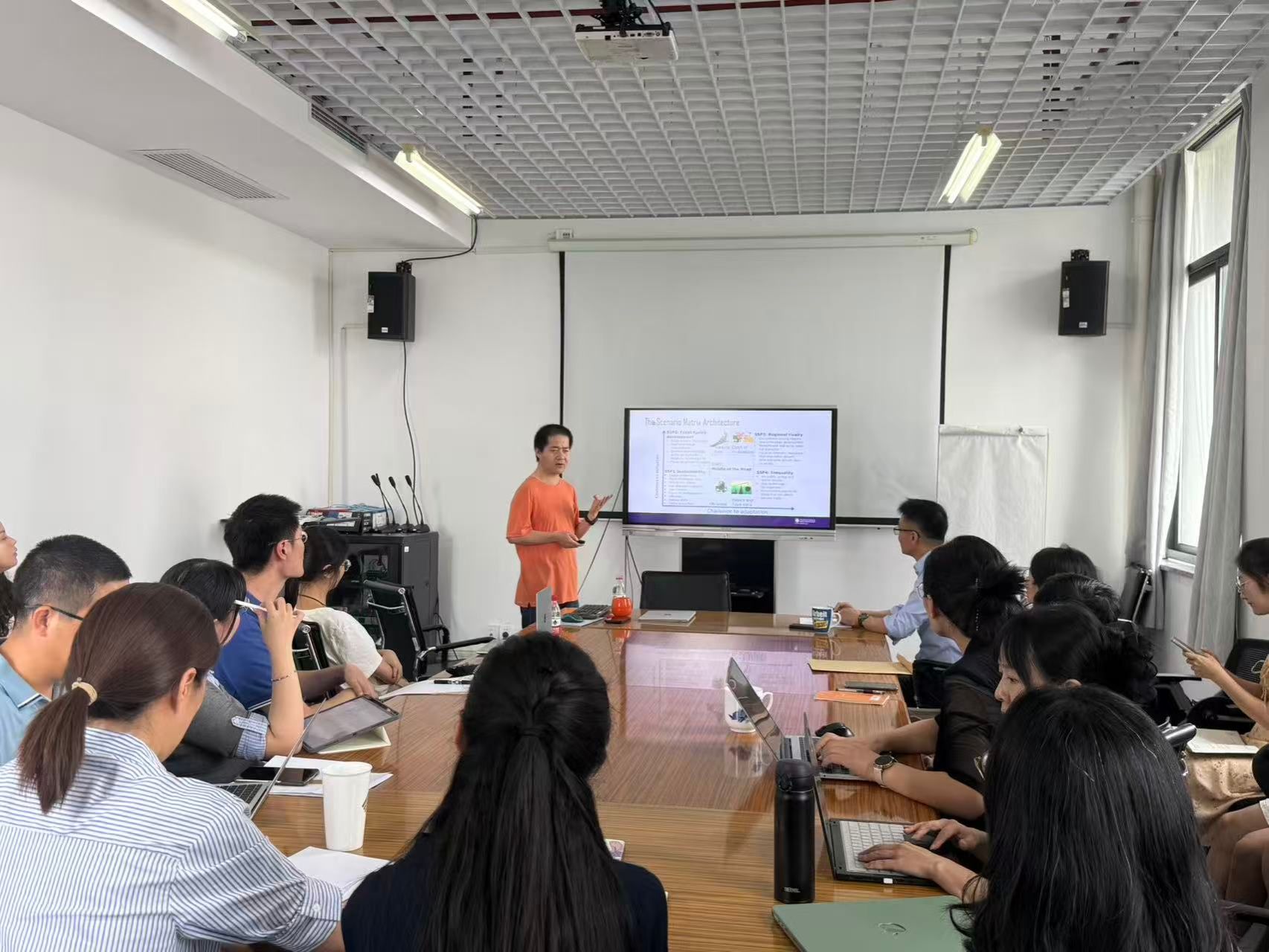On September 19, 2025, ADRI successfully hosted an academic lecture titled "Potential for GHG Mitigation and Air Pollution Abatement under the New Shared Socioeconomic Pathways". The event was chaired by Professor Jiang Leiwen and featured Professor Zhang Shaohui, a research scholar and associate professor from the International Institute for Applied Systems Analysis (IIASA), as the keynote speaker.
Professor Jiang began by introducing Professor Zhang's academic background and research expertise, extending a warm welcome on behalf of the Asian Demographic Research Center. Professor Zhang specializes in integrated assessment modeling of energy-resource-environment systems and cost-benefit analysis of air pollution and climate change policies. He has led multiple research projects supported by organizations such as the World Bank and the National Natural Science Foundation of China (NSFC), and was a co-recipient of the 2023 Frontiers Planet Prize.

In his presentation, Professor Zhang elaborated on the potential for reducing greenhouse gases (GHGs) and air pollutants under different Shared Socioeconomic Pathways (SSPs), within the frameworks established by the Intergovernmental Panel on Climate Change (IPCC) and the Scenario Model Intercomparison Project (ScenarioMIP). Using the integrated assessment model MESSAGEix-GLOBIOM-GAINS, he analyzed emission trajectories across various sectors and fuel types under different socioeconomic scenarios through 2100. His research quantified not only climate mitigation potential but also synergistic air quality co-benefits. The results highlighted that interactions among development pathways, technological deployment, and emission control strategies significantly affect the co-reduction of GHGs and air pollutants. While climate objectives can be achieved alongside substantial air quality improvements, outcomes vary considerably across pathways. These findings provide robust, scenario-based assessments to guide policymakers in designing synergistic strategies that maximize both climate and air quality benefits in the short and long term.
The discussion session emphasized that global cooperation is essential for emission reduction, taking into account differing national circumstances. Participants agreed on the importance of upholding equity, fostering flexible and inclusive international mechanisms, and collaboratively advancing climate governance and sustainable development. The lecture provided valuable insights into cutting-edge climate policy modeling and assessment, enhancing academic exchange in interdisciplinary environment and climate change studies at the School of Sociology.